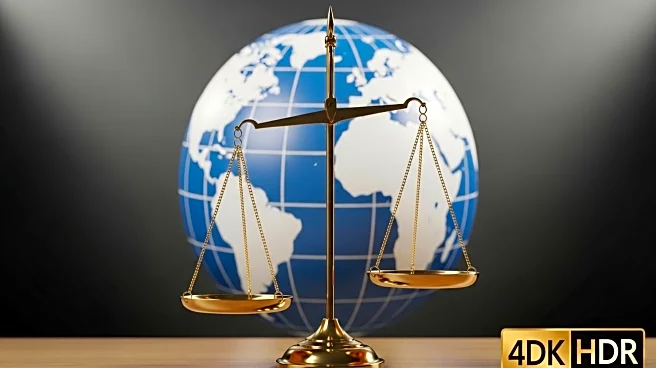What's Happening?
Five major broadcast networks, including NBC News, ABC News, CBS News, CNN, and Fox News, have announced their refusal to sign the Pentagon's new press policy. This decision comes ahead of a deadline set by the Defense Department, which requires media
organizations to agree to new rules that many journalists view as restrictive. The policy stipulates that reporters could lose their press credentials if they publish information not authorized by the Pentagon, even if the information is unclassified. The networks, along with other media organizations such as The Associated Press, Reuters, and The New York Times, argue that the policy undermines the First Amendment and core journalistic values. The Pentagon has stated that access is a privilege, not a right, and has set a deadline for media professionals to comply or return their credentials.
Why It's Important?
The refusal by major news networks to sign the Pentagon's new press policy highlights significant concerns about press freedom and the public's right to information. The policy's restrictions could impede journalists' ability to report on national security issues, which are crucial for public awareness and accountability. This development may affect how the media covers military and defense-related topics, potentially limiting transparency and oversight. The widespread rejection of the policy by diverse media outlets underscores the importance of maintaining a free and independent press, which is essential for a functioning democracy.
What's Next?
As the deadline approaches, media organizations that refuse to sign the policy will have to return their Pentagon press credentials, potentially affecting their ability to cover defense-related news from within the Pentagon. The Pentagon Press Association has formally requested the Defense Department to reconsider the new rules, citing concerns over their constitutionality and the impact on journalistic practices. The situation may lead to further discussions and negotiations between the media and the Pentagon, as both sides navigate the balance between national security and press freedom.

















